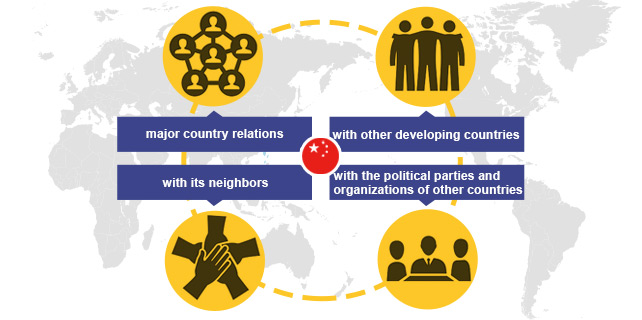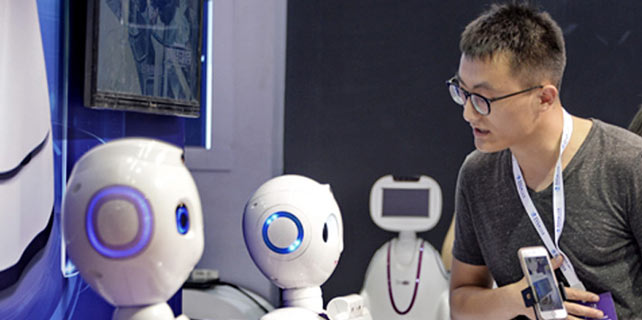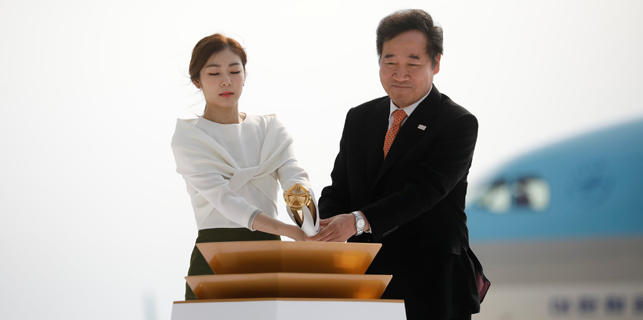Targeting 'creative thought' as a new educational era dawns
 |
|
Graduates of Peking University attend their convocation ceremony in Beijing in July. Education is key as the Chinese economy shifts away from manufacturing to a system more focused on creative thought. IMAGINECHINA |
Education will be the key as China transitions itself from a manufacturing economy to one based on science, technology and innovation, and research and development.
The old system of education is slowly changing, said Jeongmin Seong, a senior fellow at consultancy McKinsey & Company in Shanghai.
Speaking at the 2017 Sydney China Business Forum on Sept 25, he said the focus of education in China today is shifting from "memory knowledge", where students memorize facts, to one more focused on "creative thought".
He told the forum, titled Capitalizing on China's Digital Revolution, that the pace of transition is "happening so fast that the old system will take some time to change".
But, does this matter to the tech giants sprouting up all over China?
"No, not really," Seong said. "You find companies will take the best and then put them through their own in-house education programs."
The government has already set in motion major reforms to the education system with the release of the National Plan for Medium and Long-term Education Reform and Development (2010-20) seven years ago.
"Education is the cornerstone of national rejuvenation and social progress, and a fundamental way to improve citizens' quality and pro-mote their all-round development, bearing the hope of millions of families for a better life," the policy document said.
Education funding is growing annually, with 3.9 trillion yuan ($586 billion) last year, an increase of 7.57 percent from 2015, according to preliminary statistics released by the Ministry of Education in May.
Spending on preschool education in 2016 reached 280.2 billion yuan, up 15.48 percent from the previous year.
Investment in compulsory education totaled 1.76 trillion yuan, an increase of 9.76 percent year-on-year. Children in China are entitled to nine years of compulsory education.
Expenditure for high schools was 615.5 billion yuan, an increase of 6.75 percent from 2015, while the figure for higher education exceeded 1 trillion yuan, up 6.22 percent from the previous year, according to Xinhua News Agency.
Since the beginning of the 21st century, free compulsory education has become the norm in urban and rural areas, while vocational education has made headway fast.
According to the 2010-20 national plan, "remarkable progress" has been made in achieving education equity.
"Education development has vastly enhanced the quality of the entire nation, and stimulated innovation in science, technology and cultural prosperity, thereby making irreplaceable and significant contributions to China's economic growth, social progress, and the betterment of people's livelihood," the document said.
It noted that today's world is undergoing great development, profound changes and major adjustments.
"Both world multi-polarization and economic globalization are witnessing in-depth development. Science and technology are making rapid strides, and competition for talent or professionals is intensifying with each passing day."
"China is currently at a key stage for reform and development, as all-round progress is being made in economic, political, cultural and social development as well as in promoting ecological civilization."
As industrialization, IT, urbanization, marketing and internationalization develop, China has transitioned from a populous nation to one with a larger scale of human resource depth, the document said.
"China is seeing increasing pres-sure from its vast population, limited natural resources, the environment, and the transformation of its economic growth pattern."
"The future development and great rejuvenation of the Chinese nation are predicated on talent or professionals, and on education."
For an economy to successfully transition from manufacturing, an educated population well-versed in science, maths, technology, innovation and engineering is required.
The Chinese government has, for a long time now, recognized that old growth models are no longer relevant in the digital age.
The emphasis today is on innovation as the key driver toward more balanced and sustainable growth.
China recognizes that emerging technologies and the digital economy not only improve efficiencies but also improve production and services across all facets of life.
While China prides itself on its many advances in technology, it still recognizes that many will be left behind. There is still a great deal of work to doesperson for the company said.
















